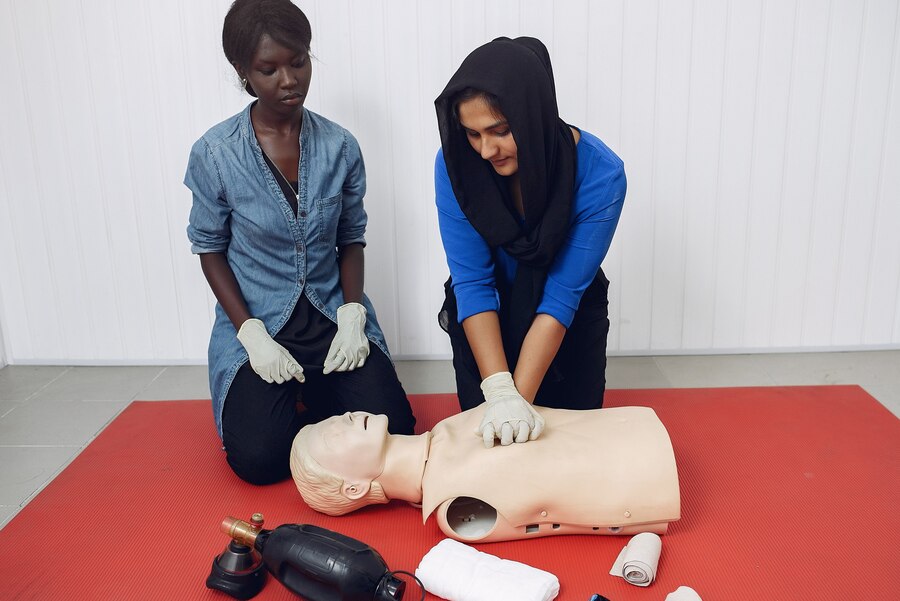Basic Life Support Nigeria
Basic Life Support Nigeria: Empowering Communities to Save Lives
Introduction: Why Basic Life Support Matters
Emergencies can happen anytime, anywhere. Whether it’s cardiac arrest, choking, or an accident, the ability to provide immediate assistance can mean the difference between life and death. Basic Life Support (BLS) is a vital training program that equips individuals with the skills needed to respond to such situations effectively.
In Nigeria, the growing emphasis on healthcare training and emergency preparedness makes BLS training more critical than ever. This article explores everything you need to know about Basic Life Support training in Nigeria, its importance, and where you can get certified.
1. What is Basic Life Support (BLS)?
Basic Life Support (BLS) refers to the immediate medical care provided to individuals experiencing life-threatening conditions such as cardiac arrest, respiratory distress, or airway obstruction.
1.1 Core Components of BLS
- Cardiopulmonary Resuscitation (CPR): Ensuring blood and oxygen flow to vital organs.
- Airway Management: Techniques to clear and maintain an open airway.
- Use of Automated External Defibrillator (AED): Delivering electric shocks to restart the heart.
- Emergency Response Protocols: Steps to manage various emergencies effectively.
1.2 Who Needs BLS Training?
- Healthcare Professionals: Doctors, nurses, and paramedics.
- Public Safety Officials: Police, firefighters, and security personnel.
- Corporate Employees: Individuals in high-stress or safety-critical industries.
- The General Public: Especially teachers, parents, and caregivers.
2. Importance of BLS Training in Nigeria
2.1 Rising Health Emergencies
Nigeria faces a growing burden of non-communicable diseases like heart attacks and strokes, making timely interventions critical.
2.2 Addressing Accident-Related Deaths
With frequent road accidents and workplace injuries, BLS training can reduce fatalities through immediate response.
2.3 Enhancing Emergency Preparedness
BLS training fosters a culture of preparedness, ensuring that more Nigerians are equipped to handle emergencies.
2.4 Building Community Resilience
When more people are trained in BLS, communities become safer and more resilient to crises.
3. Components of BLS Training in Nigeria
3.1 Theoretical Knowledge
Participants learn the science behind CPR, the physiology of cardiac arrest, and the principles of emergency care.
3.2 Practical Skills
- Performing CPR on adults, children, and infants.
- Using an Automated External Defibrillator (AED).
- Managing choking and airway obstruction.
3.3 Scenario-Based Simulations
Real-life emergency scenarios help participants build confidence and apply their skills effectively.
3.4 Certification
Participants receive a BLS certification upon successfully completing the course, recognized by local and international organizations.
4. Where to Get Basic Life Support Training in Nigeria
4.1 Ekundayo Educonsult
- Description: A leading provider of healthcare training programs, including BLS, tailored for Nigerian healthcare professionals and the public.
- Highlights: CPD-accredited courses, experienced instructors, and flexible training schedules.
4.2 Nigerian Red Cross Society
- Description: Offers comprehensive BLS training focusing on first aid and emergency response.
- Highlights: Nationwide coverage and affordable training fees.
4.3 American Heart Association (AHA)-Certified Centers
- Description: Delivers globally recognized BLS training programs in partnership with local institutions.
- Highlights: Internationally recognized certification and state-of-the-art training facilities.
4.4 Public and Private Hospitals
- Many hospitals in Nigeria offer BLS training for their staff and external participants.
4.5 Online Platforms
- Platforms like Coursera and Udemy provide foundational BLS courses for remote learning, though hands-on practice is essential for certification.
5. Steps to Enroll in BLS Training in Nigeria
Step 1: Research Training Providers
Choose a reputable institution offering accredited courses.
Step 2: Check Course Requirements
Some programs may require prior knowledge of first aid or healthcare basics.
Step 3: Register and Schedule Your Training
Sign up for a program that fits your schedule, whether in-person or online.
Step 4: Complete the Training
Engage actively in both theoretical and practical sessions.
Step 5: Obtain Certification
Pass the assessment to earn your BLS certification, valid for two years in most cases.
6. Benefits of BLS Certification in Nigeria
6.1 Professional Advancement
Healthcare professionals with BLS certification often have an edge in recruitment and career growth.
6.2 Increased Confidence in Emergencies
Certified individuals are more likely to respond effectively during life-threatening situations.
6.3 Community Impact
Trained individuals can save lives within their communities, fostering a safer environment.
6.4 Compliance with Regulations
Many organizations require employees to have BLS certification, especially in high-risk industries.
7. Success Stories: The Impact of BLS Training in Nigeria
“During a community event, I performed CPR on a man who collapsed from cardiac arrest. My BLS training saved his life.”
— Jane E., Nurse in Lagos
“Thanks to my BLS certification, I secured a job as a health and safety officer at an oil company.”
— Samuel T., Safety Professional
“I trained my students in BLS techniques, and one of them used the skills to save a choking child.”
— Amina A., Teacher in Abuja
8. Future of BLS Training in Nigeria
8.1 Integration of Technology
- Virtual reality simulations to enhance hands-on training.
- AI-driven platforms for personalized learning experiences.
8.2 Expanding Reach
- More community-based training programs in rural and underserved areas.
- Government incentives to make BLS training affordable for the public.
8.3 Inclusion in School Curriculums
Introducing BLS training in secondary schools can create a generation of life-savers.
Conclusion: Empower Yourself with Basic Life Support Training
Basic Life Support training is not just for healthcare professionals—it’s for anyone who wants to make a difference in emergencies. In Nigeria, where health emergencies and accidents are common, BLS certification is a valuable skill that can save lives and strengthen communities.
Enroll today in a BLS training program and take the first step toward becoming a life-saver.
Register Now and Get Started with Basic Life Support Nigeria

